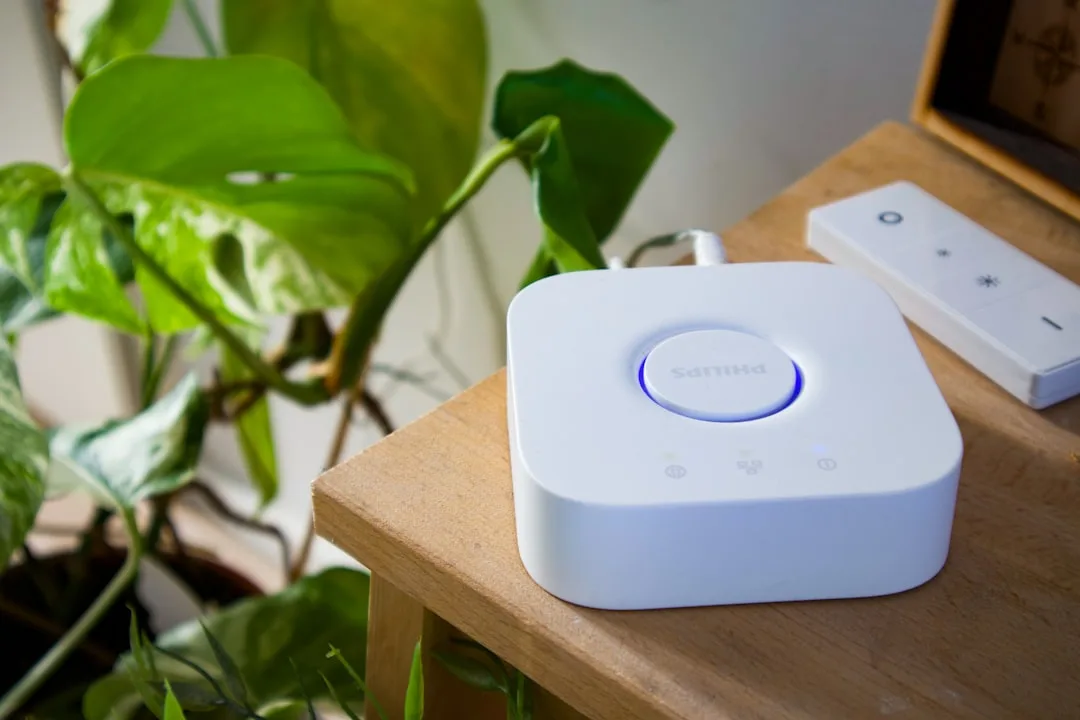
Newsletter Subscribe
Enter your email address below and subscribe to our newsletter

Enter your email address below and subscribe to our newsletter

🔍 AI innovation isn’t just for tech giants anymore. Smart home gadgets are getting a brainy upgrade, changing daily life for millions.
The revolution in smart home living is largely driven by tech innovators like Amazon with their AI-powered Echo devices and Google with Nest. But they’re not alone; smaller players like Arlo, known for AI-enhanced security cameras, are also making waves. These companies are harnessing artificial intelligence to create devices that can learn, adapt, and predict — making our homes not just smart, but truly intelligent.
Startups are playing a crucial role by focusing on niche aspects of home automation. For instance, companies like Ecobee are leveraging AI to optimize energy consumption through adaptive thermostats. Meanwhile, Ring, another Amazon-owned entity, has been integrating AI to enhance security protocols beyond just video surveillance.
The implications of AI-powered gadgets in smart homes are vast and multifaceted. For homeowners, this means increased convenience, security, and energy efficiency. But for the tech industry, it represents a significant shift in how companies approach product development and user experience.
One of the most significant changes is the push toward interoperability among devices. AI allows different gadgets to communicate more effectively. For instance, a smart thermostat can now adjust the temperature based on data received from a smart lock about when residents are home. This interconnectedness is driving a more seamless user experience.
With AI’s ability to learn patterns and behaviors, home security systems are becoming more proactive. Devices can now alert homeowners to unusual activities or even predict potential security threats based on historical data. The integration of facial recognition and movement prediction in security cameras exemplifies this trend.
AI-powered gadgets are also helping reduce energy waste. Smart lighting systems that adapt to natural light levels and occupancy, or AI-driven energy monitoring systems that provide insights into consumption patterns, are just a few examples of how AI is contributing to greener homes.
As AI technology becomes more affordable, we’re likely to see a democratization of smart home solutions. This expansion opens up new market segments, allowing startups and smaller companies to compete by offering tailored solutions that cater to specific demographic needs.
For readers interested in exploring more about how AI is shaping the future of smart homes, check out our post on The Next Big Thing in Home Automation.
The smart home sector is at the brink of a major transformation. As AI continues to evolve, we can expect these gadgets to become even more intuitive and indispensable in our daily lives. However, with increased dependence on technology, concerns about privacy and data security are likely to grow. Companies must prioritize these issues to maintain consumer trust and drive further adoption.
Looking forward, the integration of AI with IoT (Internet of Things) could lead to homes that not only understand and predict our needs but also optimize themselves for efficiency and sustainability. Imagine a future where your home can autonomously manage its energy consumption, security, and even maintenance — all thanks to the power of AI.
While the benefits of AI in smart homes are clear, the rapid pace of innovation raises questions about long-term sustainability and data ethics. It’s crucial for developers and companies to strike a balance between innovation and user privacy. The analogy of a double-edged sword is apt here — while AI can greatly enhance quality of life, it also poses risks if not managed responsibly.
Stay ahead of the curve by exploring AI-powered gadgets in your own home. Start with devices that offer trial periods or beta testing to familiarize yourself with their capabilities. Keep an eye on emerging trends and be proactive about understanding how these innovations can integrate with your existing systems.
To dive deeper into how AI is transforming tech landscapes beyond homes, read our article on AI in Enterprise Solutions.
By embracing AI-powered innovations, not only can developers and tech enthusiasts drive the next wave of smart home advancements, but they can also ensure these technologies enhance our lives responsibly and sustainably.